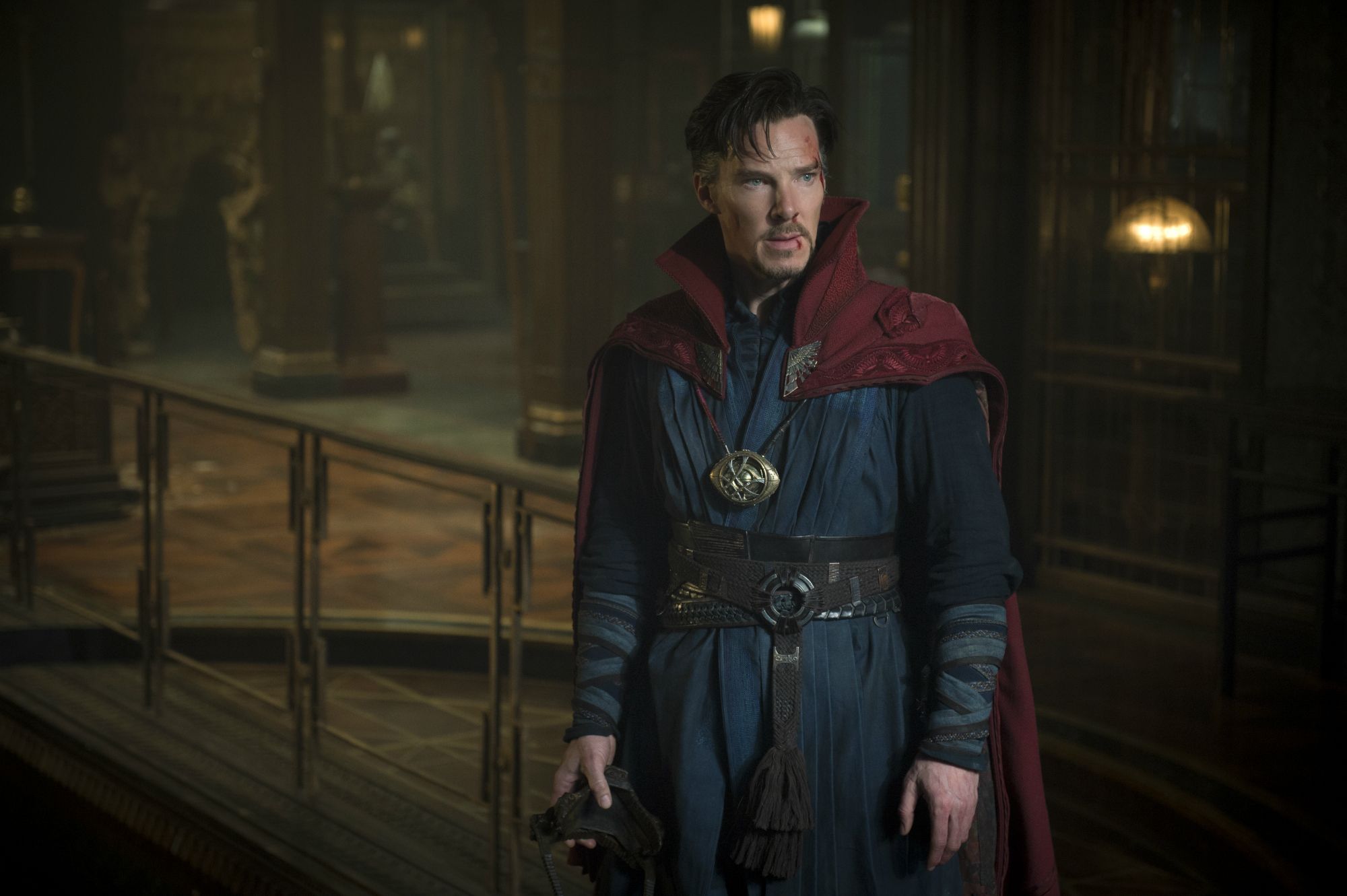
Doctor Strange could open big on brand and name recognition alone. But the latest superhero blockbuster from Marvel is a welcome follow-up to the critically acclaimed Captain America: Civil War, released earlier this year, and adds new cinematic tricks to the studio's vast sandbox just when you thought you'd seen it all, from sentient trees to an alien invasion in New York. An enjoyable first entry, it has enough depth layered within to create a rich franchise.
Benedict Cumberbatch plays Dr. Stephen Strange, a brilliant surgeon whose hands are damaged beyond any medical repair following a car accident. Determined to cure himself, he travels to Nepal to seek out the less conventional healing powers of the Ancient One (Tilda Swinton), a monk-like character who harnesses great magic. Strange is taught how to tap into this sorcery (almost like the Force in Star Wars) and is enlisted by the Ancient One in her efforts to thwart Kaecilius (Mads Mikkelsen), a former student gone bad. Along for the ride are Mordo (Chiwetel Ejiofor), another, more dutiful, student of the Ancient One, and Christine Palmer (Rachel McAdams), a doctor at the hospital Strange used to work at and his former flame.
Like previous expository Marvel films—the first Ant-Man, for example—much of Doctor Strange is devoted to Cumberbatch acquainting himself with his new powers. But the film's visual mindbending is what sets it apart from the studio's past releases. The trippy, kaleidoscopic cinematography is fun to watch as set pieces cosmically contort and expand. This will draw comparisons to Christopher Nolan's Inception, and not without merit, but director Scott Derrickson is more playful with his parlor tricks—one scene sees Strange's red cloak take on one of Kaecilius's disciples on its own.
Donning a slightly strange American accent, Cumberbatch is nevertheless an assured casting as Stephen Strange, never quite as smarmy as his Sherlock Holmes but exuding just enough egotism that he can share an inevitable chest-pounding confrontation with Robert Downey Jr.'s Tony Stark in the next Avengers.
The supporting cast, meanwhile, is buoyed by Swinton, who, for all the backlash to her casting as a Tibetan monk, is warm and brings a humorous drollness to the role. Ejiofor's Mordo often feels like a two-dimensional sidekick not befitting an actor whose performance as Solomon Northup in 12 Years a Slave was so affecting that it's a struggle to watch twice. As Doctor Strange concludes, however, you get a sense that Mordo will expand into a more complex, textured character in future films and suddenly you see why an actor of Ejiofor's caliber is required for what is initially a second-string part.
The talents of Mikkelsen, whose portrayal of Hannibal Lecter on TV series Hannibal is worthy of sharing Anthony Hopkins' prized role, are wasted on what is essentially a paint-by-numbers villain no more discernable than Thor: The Dark World 's Malekith or Guardians of the Galaxy's Ronan. This is perhaps Marvel's biggest problem in its cinematic universe; that beyond Avengers and Captain America films the villains could simply be assembled on a factory line and instilled with one egomaniacal character trait or another, whether world domination or eternal life.
The cast member most underserved by their part, however, is McAdams as one-dimensional love interest Christine Palmer. Like Natalie Portman in the Thor movies, one questions why an actor with as much on-screen magnetism as McAdams would take a part so unchallenging. In Portman's case, the Oscar winner had the sense to break her contract after two movies—one hopes that unless McAdams' Palmer is given more meat to chew on in the sequel, she might do the same.
Doctor Strange is out now in the U.K. and released on November 4 in the U.S.
Uncommon Knowledge
Newsweek is committed to challenging conventional wisdom and finding connections in the search for common ground.
Newsweek is committed to challenging conventional wisdom and finding connections in the search for common ground.
About the writer
To read how Newsweek uses AI as a newsroom tool, Click here.








